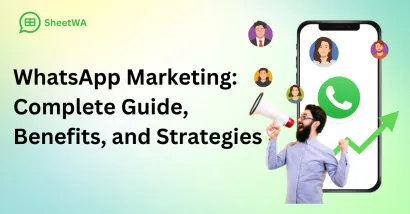
WhatsApp marketing lets you talk to customers right away. You can send messages, offers, and updates fast. People get them where they already chat. WhatsApp has over 3 billion users around the world. Your business can reach customers in India, Brazil, and the US. You use WhatsApp’s easy design and high open rates.
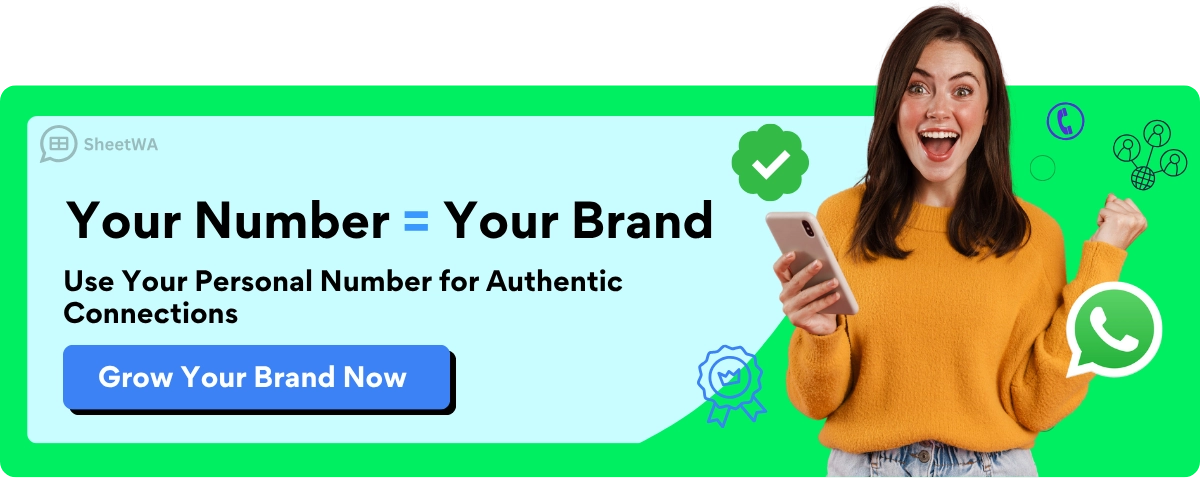
Almost 98% of people open messages. This helps your marketing work better. WhatsApp marketing helps you build trust. It helps you get more people involved. It helps you keep customers coming back.
Key Takeaways
WhatsApp marketing lets businesses send quick, personal messages to many people. Over 3 billion users use WhatsApp around the world.
Messages on WhatsApp are opened by almost everyone, about 98% of the time. This makes marketing work better.
Small businesses can use WhatsApp Business App. Big companies can use Business API to manage and automate chats.
WhatsApp marketing helps build trust with customers. People feel safe and important when chatting on WhatsApp.
Automation tools and chatbots help answer common questions fast. They also send reminders without needing a person.
Sending special messages and making customer groups helps people join in more. This can help businesses sell more.
WhatsApp marketing costs less than many other ways to market. It also gives better results and makes customers happier.
Always ask customers before sending them messages. Follow privacy rules to keep their data safe and build trust.
WhatsApp Marketing Overview
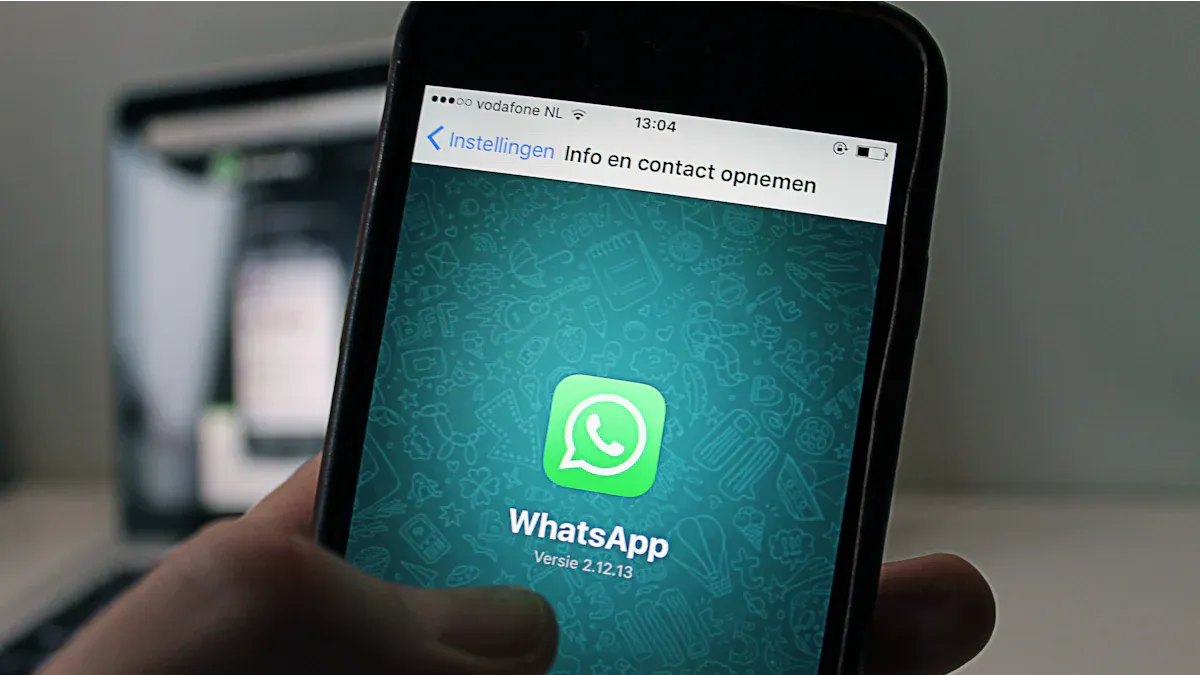
Definition
WhatsApp marketing means you use WhatsApp to tell people about your brand, products, or services. Experts say it is a type of messenger marketing. This way, you can reach many people and make good relationships with customers. It also helps you sell more things. You send messages right to your customers’ phones. You can give them deals, news, and tips. People open and read WhatsApp messages very fast. This makes more people pay attention to your business. You get better results than with many other ways to market.
WhatsApp marketing lets you talk to customers in a friendly way. You build trust and make people loyal by chatting where they feel safe.
How It Works
WhatsApp marketing uses instant messages and special tools to help you. You can make campaigns that send messages right away. You add WhatsApp Business links or QR codes to your social media. Customers can click these links to talk to your business. You can start a campaign on social media and keep it going on WhatsApp. For example, you can have a contest or a live Q&A. This helps you get people who are interested to chat with you on WhatsApp.
Click-to-WhatsApp ads let people message you from social media.
You can use chatbots and AI to answer and manage messages.
WhatsApp Business API lets you send safe and easy messages.
Automation helps you talk to leads and give quick help.
You can suggest products and answer questions right away.
You check how well your campaign works by looking at open, read, and conversion rates.
You make sure your customers get the same message everywhere. You keep talking to them and make your message clear.
Purpose
You use WhatsApp marketing to help your business in many ways. The main goal is to find new customers and help them learn about your business. You build trust by talking to people directly. You can get more sales by sending reminders, updates, and special deals. You help people find new products and buy them easily. WhatsApp marketing lets you give fast and personal help to customers. You can answer their questions and fix problems to keep them happy.
You make better relationships with your customers.
You sell more because people open and answer messages.
You make customers happy with fast and friendly chats.
You reach over 3 billion people who use WhatsApp.
You get people interested with features like broadcast lists and quick replies.
You find new leads and help them with one-on-one chats.
You give good support using automation and chat tools.
You check your results with analytics to make your marketing better.
You tell people about your products and grow your brand by talking to them.
You save money and get good results with WhatsApp marketing.
WhatsApp marketing gives your business a strong way to connect, talk, and grow.
WhatsApp Marketing Benefits

Engagement
You want your customers to notice your messages. WhatsApp marketing helps you do this better than other ways. Almost everyone opens messages sent on WhatsApp. The open rate is about 98%. This means more people see your marketing messages. You can talk to your customers right away. You can answer questions and share product catalogs. You can remind them if they leave things in their cart. Customers like this because it feels quick and personal.
About 70% of people say they like doing business with companies that use messaging apps like WhatsApp.
You can get feedback and send updates easily.
WhatsApp lets you keep promotional and transactional messages separate, which makes customers happier.
Many big companies use WhatsApp marketing to get more sales and keep customers interested. Here is a table that shows how some brands got better results:
Company | Metric/Outcome | Comparison Channel | Result/Impact on Engagement and Sales |
|---|---|---|---|
Robotime (Alfred Christ) | Sales increase and response rates | Traditional email marketing | 20% sales increase; higher response rates |
Tata CLiQ | Click-through rate (CTR) and ROI | Email and SMS | 57% CTR; 10x ROI increase; email open rate 10% |
Lenovo Indonesia | Conversion rate and engagement | Not specified | 8.2x higher conversion rate; 44.5% more engagement |
Navi (Fintech) | Upsell conversions | Not specified | 1.5x increase in insurance upsell conversions |
Segari (E-commerce) | Customer engagement rate | Not specified | Over 60% engagement rate; reached 90% consumers |
You can see that WhatsApp marketing helps you talk to customers and sell more. You get better results than with email or SMS.
Global Reach
WhatsApp marketing lets you reach customers all over the world. WhatsApp has more than 2 billion active users. You can talk to people in many countries, like India, Brazil, and the United States. You can send messages to different places and change your marketing for each area. This helps you make your messages feel special and important.
You can change your marketing to fit local languages and customs.
WhatsApp lets you send pictures, videos, and voice messages, so you can share fun content.
You can use chatbots that speak many languages to help customers.
You can group your audience by where they live and send special offers for holidays or events.
Working with local influencers helps you build trust in new places.
WhatsApp marketing lets you talk to customers everywhere. You can grow your business and find new customers without spending a lot of money.
Trust
Customers trust WhatsApp because it feels safe and easy to use. The chat looks simple and is not hard to understand. When you use WhatsApp marketing, you talk to customers in a way they know. You can send updates, answer questions, and fix problems fast. This makes customers loyal and keeps them coming back.
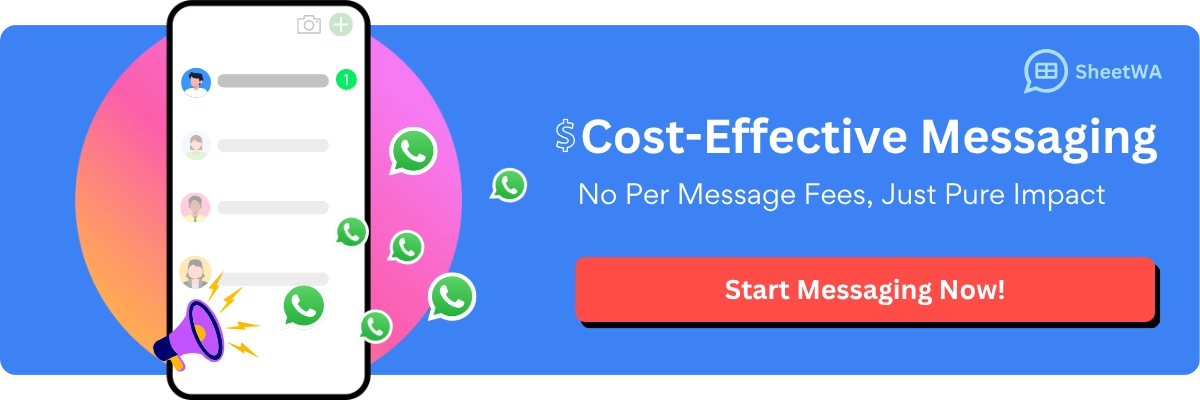
Read More: WhatsApp Bulk Message Sender Reviews: User Experiences and Insights
Tip: If you answer quickly and give good help, customers feel important. They are more likely to trust your brand and tell others about it.
WhatsApp marketing helps you build strong relationships with your customers. You show that you care about what they need. This trust helps your business grow and succeed for a long time.
Cost-Effectiveness
If you want to save money on marketing, WhatsApp is a good choice. You can talk to lots of people without spending a lot. WhatsApp marketing usually costs less than SMS or email. This is true when you see how many people read and reply to your messages.
Let’s see how WhatsApp, SMS, and email compare:
Marketing Channel | Direct Cost Per Message | Engagement & Conversion Rates | Hidden/Ancillary Costs | Overall Cost-Effectiveness |
|---|---|---|---|---|
$0.008 per message (can be cheaper than SMS); flat-rate plans for big campaigns | High open rates (~99%), conversion rates 45-60%, two-way chat, multimedia | No monthly fees, no short code rental, delivery/read receipts | More cost-effective due to high engagement and conversion | |
SMS | Sometimes cheaper per message (e.g., ₹0.12 SMS vs ₹0.25 WhatsApp in India) | High open rates ( | Needs short codes, monthly fees, possible spam issues | Lower cost per message, but higher cost per conversion |
Very low per message | Low open (~21%) and conversion (2-5%) | Few direct costs, but low effectiveness | Less cost-effective due to poor engagement |
WhatsApp might cost a bit more for each message in some places. But you get better results for your money. For example, if you send 100,000 messages, SMS could cost $1,000 and WhatsApp $800 in some areas. In India, SMS may be cheaper, but WhatsApp helps more people buy or reply. This means you spend less for each person who acts.
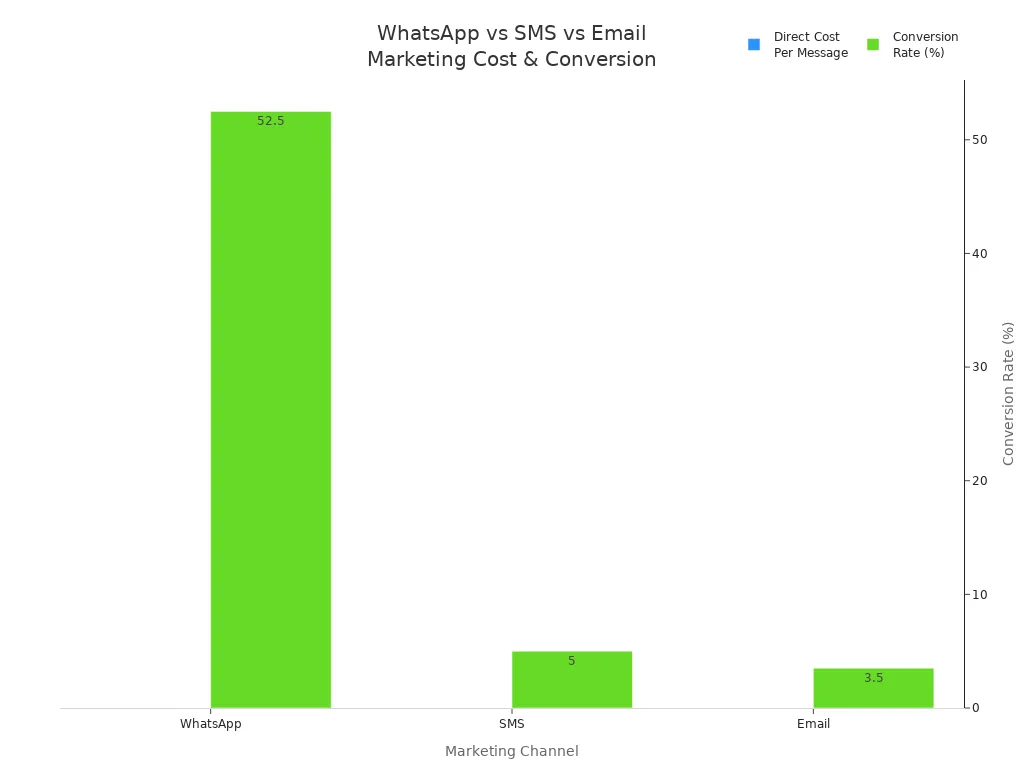
WhatsApp also helps you save in other ways. You do not pay for short codes. You do not worry about messages going to spam. You get delivery and read receipts, so you know your message was seen. This stops you from wasting money on messages no one reads.
Here is another way to look at the value:
Marketing Channel | Open Rate | Conversion Rate | Engagement Level | Cost Effectiveness |
|---|---|---|---|---|
~98% | 45-60% | Very High | High | |
~21% | 2-5% | Medium | Medium | |
SMS | ~21% | 2-5% | Low | Medium |
WhatsApp messages feel friendly and personal. People trust them more than SMS or email. You can send pictures, videos, and voice notes. This makes your message special. Most people see and answer WhatsApp messages fast. This quick reply gives you more value for your money.
Tip: Try WhatsApp’s flat-rate or unlimited plans for big campaigns. You can reach more people and pay less for each message.
When you use WhatsApp marketing, your money works harder. You reach more people, get better results, and build strong relationships. You do all this while keeping your costs low.
WhatsApp Marketing Solutions
There are three main WhatsApp marketing solutions. These are Messenger, Business App, and Business API. Each one works for different types of businesses. You need to pick the right one to get good results.
Messenger
WhatsApp Messenger is the app most people use to chat. You can send messages, call, and share photos or videos. Your chats stay private because of end-to-end encryption.
Messenger does not have business profiles or special marketing tools. It does not let you use catalogs, automated replies, or analytics. If you own a business, Messenger is not the best for marketing. You should only use it for talking with friends or family.
Note: Messenger is great for personal chats. It does not help you talk to customers or grow your business.
Business App
The WhatsApp Business App helps small businesses talk to customers. You can make a business profile with your logo, address, and website. The app lets you set up greetings, away messages, and quick replies. You can use labels and filters to organize chats. You can also show your products in a catalog.
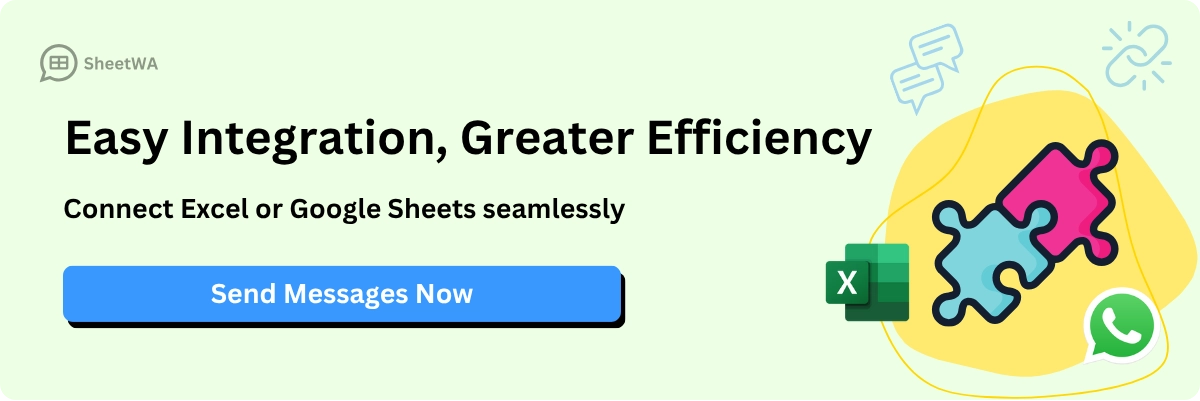
You can use the Business App on one phone. It does not let many people use it at once. You cannot connect it to a CRM or other business tools. This app is best for small shops or local services. You get simple tools for marketing and customer support.
Key features of WhatsApp Business App:
Business profile with contact info
Automated greetings and away messages
Quick replies for common questions
Product catalog to show your items
Labels to organize chats
Business API
The WhatsApp Business API is for big companies. It helps you talk to many customers at the same time. You can connect the API to your website or CRM. This lets you send automated messages and updates. You can use chatbots to answer questions fast. Many people on your team can help customers.
You need technical skills or help from a Business Solution Provider to set up the API. WhatsApp must approve your business before you use it. The API costs money but gives you strong tools for marketing and automation. If you run a big company or online store, the API helps you grow and support customers.
Key features of WhatsApp Business API:
Advanced automation and chatbots
Integration with business systems
Multi-user support for teams
Analytics dashboards to track results
Verified business badge for trust
Comparing WhatsApp Marketing Solutions
Here is a table that shows the main differences:
Platform | Best For | Key Features | Limitations / Requirements |
|---|---|---|---|
Messenger | Personal use | Instant messaging, voice/video calls, status updates | No business tools, not for marketing |
Business App | Small and medium businesses | Business profile, automated messages, quick replies, labels, product catalog | Single device, no CRM integration, basic analytics |
Business API | Large businesses, enterprises | Advanced automation, chatbots, analytics, multi-user support, integration with business systems | Requires approval, technical setup, paid service |
Which Solution Fits Your Business?
Pick the WhatsApp marketing solution that matches your business size. Here is a simple guide:
Business Type | Best WhatsApp Marketing Solution | Why It Fits |
|---|---|---|
Small Shop or Local Store | Business App | Easy setup, simple tools, no technical skills needed |
Medium Business | Business App or Business API | More features for growth, automation, and better customer support |
Large Enterprise | Business API | Scalable, supports automation, analytics, and team access |
E-commerce | Business API | Handles many orders, sends updates, automates support |
Service Provider | Business App or Business API | Sends reminders, answers questions, manages bookings |
You can use WhatsApp marketing in retail, beauty, cars, finance, travel, and telecom. If you do not know how to set up the API, a Business Solution Provider can help.
Tip: Use the Business App if your business is small. Switch to the Business API when you need more automation.
WhatsApp marketing solutions help you connect and grow your business. You can choose the best one and start building strong customer relationships today.
Who Can Use WhatsApp Marketing
Small Businesses
Small businesses can use WhatsApp marketing to reach more people. You can make your business look professional with a profile, logo, and catalog. Send messages, photos, and videos to show your products in a fun way. WhatsApp lets you answer questions fast and helps people trust your business.
Here are some special benefits for small businesses:
Advantage | Description | Example / Outcome |
|---|---|---|
Professional Branding | Make a profile with your logo, colors, and catalog | Sandra’s Cakes bakery gets more customers with pictures |
Automated Messaging | Use chatbots and quick replies to save time | Automate 75% of support and make customers happier |
Customer Segmentation | Group customers by where they live or what they like | Allo Innoware got 11X ROAS and more sales |
Seamless Integration | Connect WhatsApp with CRM tools for better tracking | Track chats with HubSpot or Salesforce |
Cost Savings | Spend less money and get more prepaid orders | Emami saved money and got more prepaid sales |
You also get these good things:
Send as many messages as you want to people everywhere for a low price.
Build trust with safe chats and verified accounts.
Use automation to send greetings and away messages.
Share videos and voice notes to get people interested.
Answer right away to keep customers happy.
Tip: Send special deals or news on WhatsApp. Your customers will feel special and want to come back.
Enterprises
Big businesses can use WhatsApp marketing to talk to many customers at once. The WhatsApp Business Platform (API) lets you send messages, set up auto replies, and check results with analytics. You can connect with thousands of people every day.
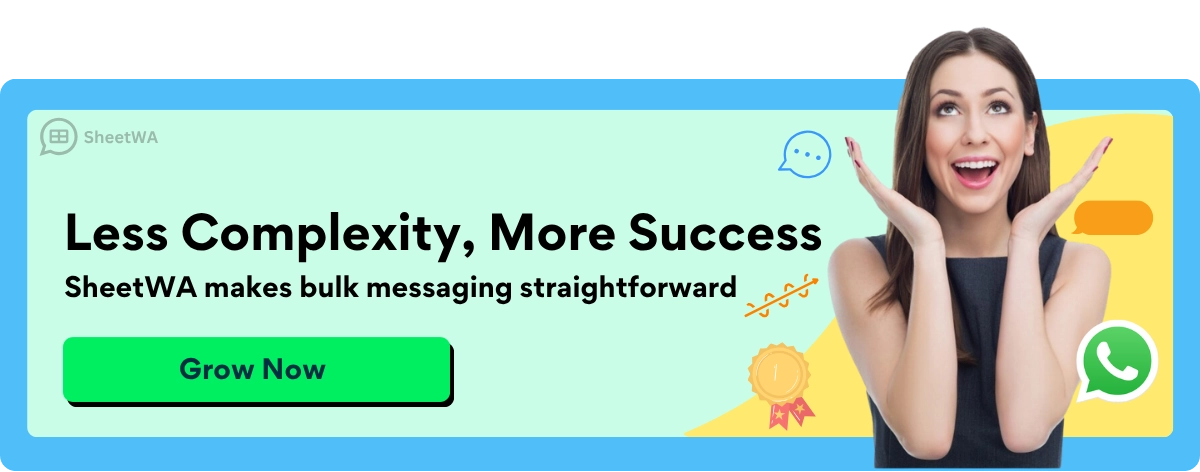
Large companies often work with solution providers for extra features. You can use chatbots, message templates, and connect with CRM tools to make marketing smarter. For example, PolicyBazaar used WhatsApp for real-time chats and got more sales. They collected more insurance money and worked faster.
You can also run campaigns on different social media. This helps you give each person a special experience. WhatsApp lets your business grow, automate jobs, and learn from customer data.
E-commerce
E-commerce stores can use WhatsApp to sell more and help customers better. You can turn website visitors into buyers with click-to-chat buttons. Shoppers can ask questions and get help right away. You can also send order updates, product tips, and special deals.
Here are some top ways for e-commerce:
Use click-to-chat ads to bring shoppers to WhatsApp for special offers.
Add pop-ups on your site to grow your WhatsApp list for news and help.
Send product ideas based on what people bought before.
Offer live chats so customers can talk to experts.
Try different message styles to see what works best.
Group your broadcast lists by what customers do for better messages.
Make a community with WhatsApp groups and run fun events.
Use different numbers for marketing and support to keep things simple.
WhatsApp helps you reach customers fast, answer their questions, and make shopping easy. This builds trust and keeps people coming back to your store.
Service Providers
If you have a service business, WhatsApp marketing can help you get noticed. You can talk to your customers in a quick and friendly way. Many service providers like salons, clinics, and repair shops use WhatsApp. They use it to make customers happy and keep them coming back.
WhatsApp Business features help you talk to customers easily. Automated welcome messages greet new customers right away. Away messages tell people when you are not there. Follow-up messages remind customers about appointments or ask for feedback. These tools help you stay in touch without much work.
You can organize chats with labels and quick replies. Labels help you sort customers by what they need or bought before. Quick replies save time when you answer common questions. This makes your service feel friendly and fast.
Some service providers make special WhatsApp groups for loyal customers. These groups help you build a community. You can share tips, updates, and special deals in these groups. Customers like being part of something special.
Real-time support is a big plus. You can answer questions and fix problems fast. Quick replies build trust and show you care. Sharing order confirmations and reminders keeps everyone updated.
You can use WhatsApp Status to show flash sales or new services. Posting updates keeps customers interested. Sharing helpful content and event invites helps you stay in their minds.
Loyalty programs work well on WhatsApp. You can reward repeat customers and ask for referrals. Sending personal messages based on what customers do makes them loyal. Chatbots can give support all day and night. They answer questions and help customers even when you are not online.
Getting feedback is easy on WhatsApp. You can ask for reviews or ideas after a service. This shows you care about what customers think and helps you get better.
Here is a quick look at how service providers use WhatsApp marketing:
WhatsApp Feature | How It Helps Service Providers |
|---|---|
Automated Messages | Welcome, away, and follow-up messages |
Quick Replies & Labels | Organize chats and personalize responses |
Exclusive Groups | Build community and offer special deals |
Real-Time Support | Fast answers and complaint handling |
Transactional Updates | Send confirmations and reminders |
Status & Promotions | Share flash sales and new services |
Loyalty Programs | Reward repeat business and referrals |
Chatbots | 24/7 support and instant answers |
Feedback Collection | Gather reviews and improve service |
Tip: Use WhatsApp to send reminders and special deals. Your customers will like the friendly messages and quick help.
WhatsApp marketing gives your service business strong tools. You can build good relationships, make customers happy, and keep them loyal.
Strategies for WhatsApp Marketing
Opt-In List
A good opt-in list is very important for WhatsApp marketing. You want people to join your list because they want to. Make it simple for them to sign up. Use Click-to-WhatsApp ads so people can message you with one tap. Share your WhatsApp number on your website, social media, emails, and flyers. Give rewards like discounts or special content to get more sign-ups.
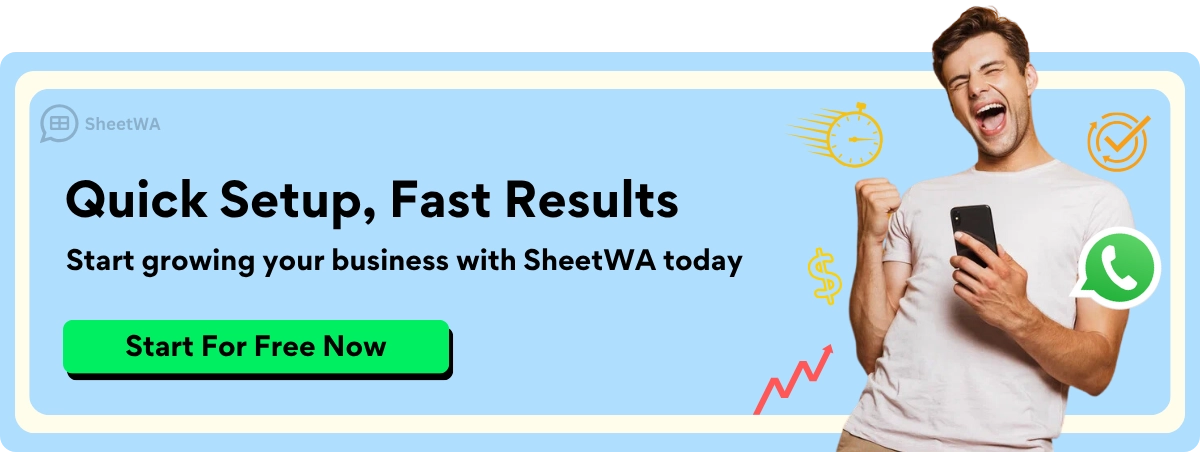
Here are some tips for a strong opt-in list:
Use many ways to let people join, like your website, pop-ups, ads, emails, texts, and paper flyers.
Tell people what they will get if they join.
Get clear permission and follow privacy rules.
Write messages that show why joining is good.
Give rewards like special deals or early news.
Make signing up easy with QR codes, links, or short forms.
Tell people how to leave the list and do it fast if they ask.
Do not send too many messages or people may block you.
Check how your campaign is doing by looking at clicks and feedback.
Tip: Always tell people how often you will message them and what kind of messages you will send. This helps people trust you and stay on your list.
A good opt-in list helps you reach the right people. It also keeps your WhatsApp marketing safe and working well.
Personalization
Personalization is a great way to make WhatsApp marketing work better. You should send messages that feel special to each person. Split your audience into groups by what they like, where they live, or what they bought. Send messages to each group for better results.
Most people like getting messages made just for them. About 71% of people want messages that fit them. You can send product ideas or help in real time to build strong relationships. People check WhatsApp about 23 times every day, so you have many chances to talk to them.
Personalized WhatsApp messages help more people buy, with rates between 45-60%.
About 15% of people click on these messages.
WhatsApp gets 72% more visits per user than other ways.
People who get WhatsApp messages are almost twice as likely to buy.
Tip: Use what you know about your customers to send offers at the right time. Ask for feedback on WhatsApp to make your service better.
Personalization turns shoppers into loyal fans. It also helps your business stand out from others.
Automation
Automation is a smart way to save time with WhatsApp marketing. You can use tools to send many messages at once, plan campaigns, and answer common questions. Chatbots can help customers all day and night. Automated follow-ups and special offers help you get more leads.
Here is a table with some popular WhatsApp marketing tools and what they do:
Tool Name | Key Features | How It Improves Campaign Efficiency |
|---|---|---|
RapBooster | Bulk messaging, chatbot, CRM, analytics | Automates campaigns, tracks engagement |
WAMessager | Templates, segmentation, reports | Quick campaigns, audience targeting |
WhatSender | Scheduling, contact import, analytics | High-volume campaigns, detailed tracking |
WappBiz | No-code automation, AI chatbots | Easy management, real-time analytics |
Whappend | Automated replies, anti-spam, analytics | Team collaboration, compliance |
WaSender | Personalized broadcasts, filtering | Efficient outreach, detailed reports |
TimelinesAI | AI automation, sequences, CRM | Recurring tasks, lead qualification |
Automation makes your work easier and saves money. You can talk to more people and see how your campaign is doing with analytics. Use these ideas to make your work faster and get more people interested.
Tip: Let automation handle things like reminders or answering the same questions. This gives you more time to think of new marketing ideas.
Automation helps you give fast, personal, and regular messages to your customers. It makes your WhatsApp marketing work better and lets you grow.
Customer Support
You can use WhatsApp to help customers faster. Many people want answers right away. WhatsApp lets you reply in real time. You can send messages, photos, or voice notes. This makes your help feel friendly and personal.
WhatsApp lets you answer 60% faster than phone or email. Most people want a reply in 10 minutes. If you answer fast, you get fewer bad reviews. You can use chatbots to answer 70% of common questions. This saves time and lets your team handle harder problems. Chatbots can help many people at once. You do not need as many workers for easy questions.
Here is a table that shows how WhatsApp helps with support:
Aspect | How WhatsApp Helps |
|---|---|
Faster response times | Replies are 60% quicker than phone or email, meeting expectations for fast answers |
Automation efficiency | Chatbots answer 70% of FAQs, saving 80% effort and freeing up staff |
Cost savings | Support costs drop by about one-third compared to old methods |
Customer satisfaction & loyalty | Personal chats build trust and keep customers coming back |
Integration benefits | Connects with CRM and helpdesk for better tracking and faster service |
Best practices | Use consent, train staff, and set clear goals for best results |
You can connect WhatsApp to your CRM or helpdesk. This lets you see each customer’s history. You can check old chats and fix problems faster. Customers like WhatsApp because it feels safe and simple. You can send pictures or videos to explain things. This makes your help even better.
Personal help builds trust. If you greet people by name, they feel special. Remembering past questions shows you care. You can send updates or reminders about orders or appointments. This keeps customers happy and loyal.

To do your best, follow some good steps. Always ask before you message someone. Train your team to use WhatsApp well. Make sure you have enough people to answer fast. Set clear goals for your team. These steps help you give great service and keep customers satisfied.
Best Examples of WhatsApp Marketing
E-commerce
Many e-commerce brands use WhatsApp in smart ways. They talk to shoppers, answer questions, and help people buy things. Here are some examples:
Flipkart made a chatbot with a Bollywood star. The chatbot shared games and puzzles. This helped Flipkart get 3.5 times more sales and $2.5 million in two weeks.
Unilever in Brazil used billboards and a WhatsApp chatbot. The chatbot gave tips for fabric care and discounts. This made sales go up 14 times and over 290,000 messages were sent.
Bombay Sweet Shop uses WhatsApp Business API for order updates and special offers. This helps them get more repeat buyers and direct sales.
Omay Foods put WhatsApp buttons on their website and social media. Customers could order and get help easily. This made inquiries go up 5 times and repeat buyers go up 3 times.
Lenskart had a Valentine’s Day sale on WhatsApp. They sent personal messages and follow-ups. This made more people open messages, visit the site, and buy things. Their marketing costs went down.
These stories show how e-commerce brands use WhatsApp to talk to customers, share deals, and sell more.
Service Reminders
WhatsApp is good for sending reminders about appointments, payments, or renewals. Automated reminders help people remember what they need to do. Businesses see a 98% open rate for WhatsApp reminders. Almost everyone reads these messages. Sending reminders 72 and 24 hours before an appointment helps cut missed visits by 35%. You can add details and let people confirm or change their time. This two-way chat helps build trust and loyalty.
Businesses also see up to 80% better attendance when they use WhatsApp reminders. Staff spend less time calling or emailing people. Customers like quick and personal messages. You can use templates and chatbots to make reminders easy and fast.
Order Updates
Order updates are a common way to use WhatsApp marketing. You can send order confirmations, shipping updates, and delivery alerts. Customers get tracking links and answers to delivery questions right away. This keeps them happy and informed.
Brights Hardware saw sales go up 244% after using WhatsApp chatbots for order updates.
Toys "R" Us South Africa got 40% more customer engagement with WhatsApp live chat and order notifications.
Automated updates lower support costs by 73%. Customers do not need to call or email for updates.
Chatbots answer delivery questions all day and night. Customers get help any time.
Alerts for deliveries help lower missed drop-offs and make rescheduling easy.
You can connect WhatsApp with your CRM to give personal support. Customers feel cared for and trust your business more.
Community Engagement
You can use WhatsApp to help people feel part of your brand. When you make WhatsApp groups, customers can talk to you and each other. These groups let you share news and special deals right away. You can also answer questions and fix problems fast.
Many brands use WhatsApp Business Communities to talk with customers. You can split your audience into smaller groups by what they like or where they live. This helps you send messages that fit each group. For example, you can tell one group about new products and invite another to events. Sending the right message to each group makes it feel special and works better.
Here are some ways brands use WhatsApp for community engagement:
Make groups for fans, loyal customers, or event guests.
Share news about new products and special deals.
Use automation for welcome messages and order updates.
Let real people answer hard questions for a friendly touch.
Build trust by giving quick help and support.
Brands like BookMyShow use WhatsApp groups to help customers. Fastrack sends sales news to keep fans in the loop. Ajio shares deals and new items in their groups. These stories show how WhatsApp helps brands stay close to their fans.
WhatsApp groups can have up to 5,000 people. This helps your brand reach more people. You can run big groups and still keep chats friendly. Automation can answer most simple questions, so your team can do harder jobs. This helps your team work better and keeps customers happy.
WhatsApp community engagement has many good points:
Almost all WhatsApp messages get opened.
Most messages are read in just three seconds.
You spend less money than with old marketing ways.
Customers feel special and close to your brand.
Heidi Rhodes from Meta says WhatsApp business chats are growing fast. Brands now send billions of messages every day. Aner Shah, who worked at Meta, says WhatsApp changed how brands help customers. Now you can give help right away instead of using call centers.
When you use WhatsApp for community engagement, you make stronger bonds. Your brand feels more fun and trusted. These stories show WhatsApp is a great way to grow your business community.
Compliance
Privacy
You need to keep your customers’ information safe when using WhatsApp for marketing. Privacy rules help protect people’s data and help you earn trust. Many countries have strict laws about collecting and using data. You must follow these laws to avoid getting in trouble or paying fines.
Here are some important privacy steps you should follow:
Use the WhatsApp Business Platform with an official Business Solution Provider.
Get clear permission from users before you collect or use their data.
Tell users what data you collect, why you need it, and who you share it with.
Follow laws like GDPR and CCPA. These laws say you must have a good reason to collect data and keep it safe.
Some businesses, like banks or hospitals, need extra steps like safe storage and more checks.
Do a Data Protection Impact Assessment (DPIA) to find and fix risks.
Let users leave or take back their permission at any time.
Use strong security tools like encryption and access controls to keep data safe.
If you do not follow these steps, you could get in legal trouble, pay fines, or lose people’s trust. Always make privacy very important when you use WhatsApp for your business.
Note: Keeping customer data safe is not just a rule. It is a way to show respect and build trust with your audience.
Consent
You must get clear permission before sending marketing messages on WhatsApp. Consent means your customers agree to get messages from you. This is not just a good idea, it is also the law in many places.
Here are some best ways to get consent:
Ask for permission before you send any WhatsApp messages.
Use easy ways to get consent, like website forms, checkboxes, SMS, or QR codes.
Tell customers what kind of messages they will get, like order updates or special deals.
Make signing up quick and simple. For example, use QR codes on packages or sign-up forms at checkout.
Explain why joining your WhatsApp list is good, like getting early deals or helpful news.
Never send messages to people who did not give permission. This helps you avoid legal trouble and keeps your account safe.
Make it easy for users to leave if they want.
Tip: Always let people leave your list right away if they ask. This keeps your business trusted and in good standing.
Anti-Spam
WhatsApp has strong rules to stop spam and protect users from unwanted messages. You must follow these rules to keep your account safe and your brand trusted.
Here are some important anti-spam steps:
Always get clear permission before adding anyone to your message list.
Give users easy ways to leave or change their message settings.
Make your messages personal and update them often so they stay interesting.
Use groups to send messages based on what users like or do.
Use WhatsApp Business API features like quick replies and templates to keep messages helpful and personal.
Do not send too many messages at once. Use automation tools carefully.
Use pictures, videos, and business tools like catalogs and broadcast lists to make your messages better.
WhatsApp uses smart security to block spam accounts. If you send too many unwanted messages, your account can get blocked. Always follow WhatsApp’s rules and do not use unofficial bulk messaging tools. This keeps your marketing safe and working well.
Note: Sending only wanted and useful messages helps you build better relationships and keeps your WhatsApp account safe.
Analytics
Watching your WhatsApp marketing numbers helps you see what works. You can use analytics tools to check how your messages do. These tools show you numbers and facts. This helps you make better choices for your business.
Many platforms have analytics for WhatsApp marketing. You can pick the one that fits your needs best. Here are some popular choices:
WhatsApp Business API: Shows if messages get delivered, opened, and how fast people reply.
HubSpot: Works with WhatsApp to give you reports on how people interact.
Twilio: Lets you send and track messages. You can see delivery and reply rates.
MessageBird: Gives you data about how well your messages do and if people buy things.
Interakt: Has a dashboard to watch chats, reply times, and how much people talk to you. You also get reports on how happy customers are and how your campaigns do.
Convertway: Helps you group your audience, send broadcasts, and set up automation. You can track open rates and money earned from your campaigns.
When you use these tools, you should look at important numbers to see how you are doing. Here is a table to help you know what to watch:
Metric Name | What It Shows | Why It Matters |
|---|---|---|
Open Rate | How many people open your messages | Shows if people see your messages |
Response Rate | How many people reply to your messages | Tells you if customers are interested |
Click-Through Rate (CTR) | How many people click links in your messages | Checks if your message makes people act |
Conversion Rate | How many people buy or sign up | Shows if your campaign works |
Message Delivery Rate | How many messages reach customers | Makes sure your messages get sent |
Response Time | How fast you answer customers | Helps you give better support |
Customer Satisfaction (CSAT) | How happy your customers feel | Shows if your service is good |
First Contact Resolution (FCR) | How often you fix problems on the first try | Tells if your support is strong |
Engagement Rate | How much people interact with your messages | Shows if people care about your messages |
You can use these numbers to see which messages people like most. If your open rate is high, people want to read your messages. If your conversion rate is low, you might need to change your offer or how you write. Fast replies and happy customers mean you are doing a good job.
Tip: Look at your analytics often. Use what you learn to try new ideas and make your campaigns better. Even small changes can help you get better results.
Analytics help you learn from every campaign. You can see what your customers like and what makes them act. With the right tools and numbers, you can grow your business and keep your customers happy.
You can use WhatsApp marketing to talk to customers fast. You send messages right away and build strong bonds. This helps your business grow with automation and personal chats. You also give instant help to customers. The table below shows why WhatsApp is great for business marketing:
Key WhatsApp Marketing Insights | Supporting Data & Explanation |
|---|---|
Global Adoption | Over 50 million businesses use WhatsApp Business. |
Revenue Generation | $1.7 billion generated in 2026. |
Consumer Expectations | 74% want to buy via messaging apps. |
Trust & Security | 68% trust WhatsApp for business messaging. |
To start using WhatsApp marketing, follow these steps:
Make your WhatsApp API account.
Sort your customer contacts into groups.
Write and send your marketing messages.
Check how your campaign does and make it better.
WhatsApp marketing works for all business sizes. You can try different solutions and test your plan. This helps you meet customer needs and get more people interested.
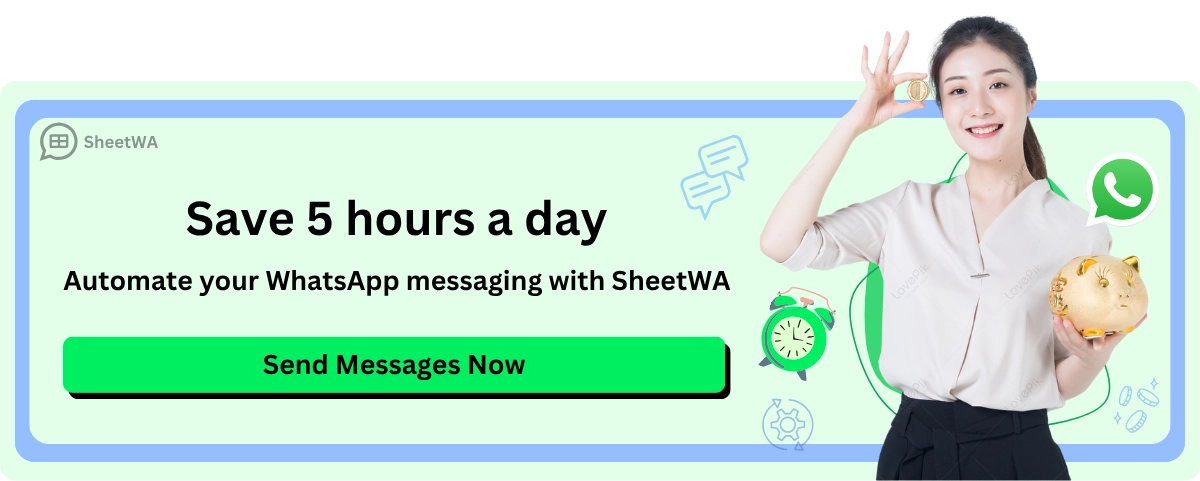
FAQ
What is WhatsApp marketing?
WhatsApp marketing means you use WhatsApp to send messages to customers. You can share news and updates. You can offer deals and answer questions. You help people buy your products or services.
Can you use WhatsApp for business if you have a small shop?
Yes, you can use WhatsApp Business App for your small shop. You make a business profile and show your products. You talk to customers fast. This helps you look professional and build trust.
How do you get people to join your WhatsApp list?
You ask customers to join by sharing your WhatsApp number. Put it on your website, social media, or in your store. Give special deals or tips to make people want to sign up.
Is WhatsApp marketing safe for customer data?
Yes, WhatsApp uses end-to-end encryption to keep messages private. You must follow privacy laws and get clear permission before sending marketing messages. This keeps your customers’ data safe.
What types of messages work best on WhatsApp?
Personal messages, order updates, reminders, and special offers work best. You can send pictures, videos, or voice notes. Customers like quick, friendly, and helpful messages.
Can you automate replies on WhatsApp?
You can use chatbots or quick replies to answer common questions. This saves you time and helps customers get answers fast. You can help even when you are not online.
How do you measure success in WhatsApp marketing?
You can track open rates, response rates, and sales from your messages. Use analytics tools to see what works best. This helps you improve your marketing and reach more people.
Do you need customer consent to send WhatsApp messages?
Yes, you must get clear permission before sending marketing messages. Always tell customers what they will get and how often. This keeps your business trusted and follows the rules.

